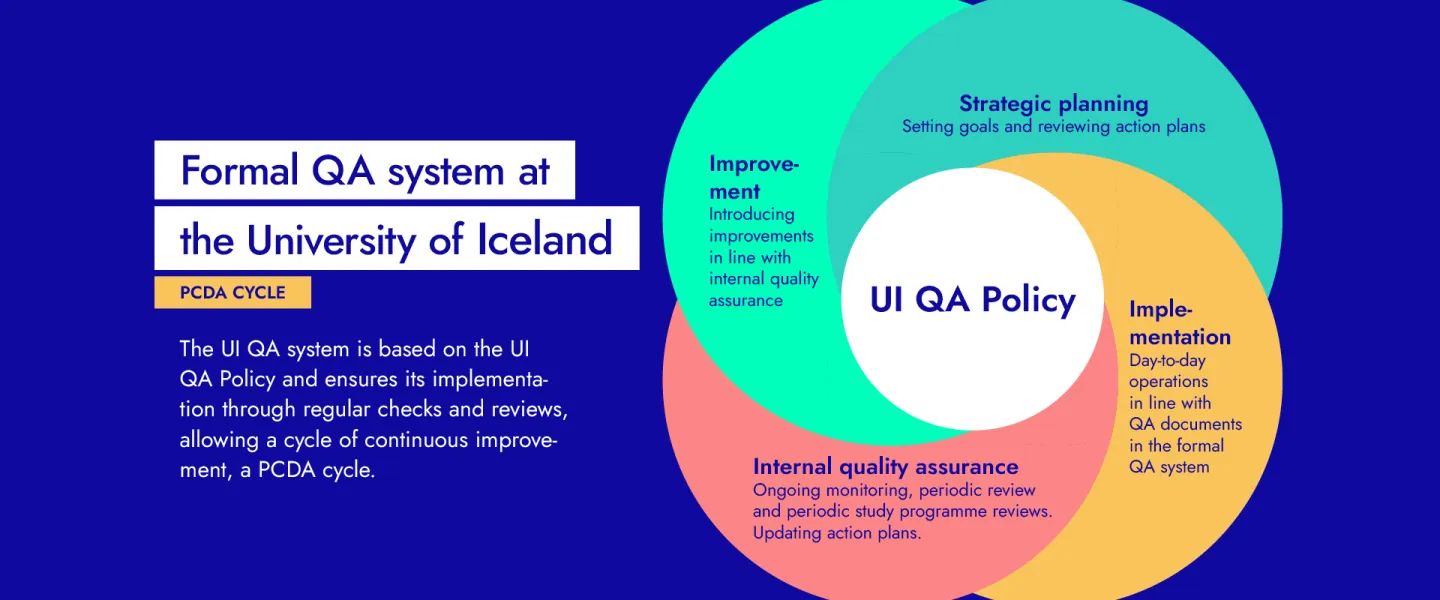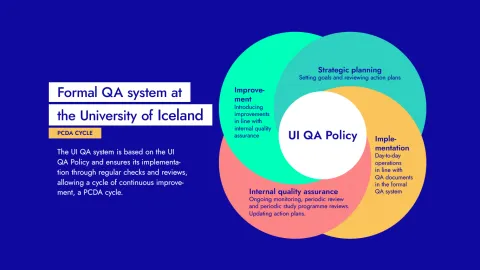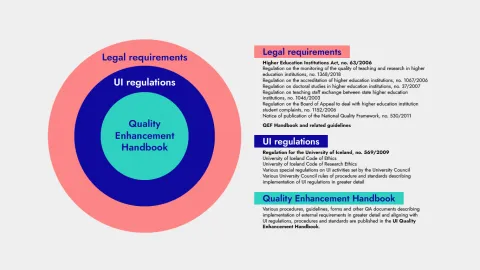
The formal quality assurance system at the University of Iceland (The UI QA system) covers the University’s core activities and support services. The QA system describes quality assurance policy, accountability, implementation, supervision and follow-up of internal quality assurance at UI. The UI QA system is based on the UI Quality Assurance Policy and is a tool employed in implementing the policy.
The rector and the University Council are accountable for the UI QA system, whereas school deans, faculty heads, division directors, and managing directors are accountable for the quality of activities within their respective units.
The role of the University Council’s Strategy and Quality Assurance Board is to guarantee and enhance the quality of study programmes and teaching, research and governance at the University of Iceland. This involves, e.g., strengthening the UI QA system and enhancing quality culture within the University. UI’s director of strategy and quality management will follow up decisions made by the Strategy and Quality Assurance Board.
The Icelandic Agency for Quality Assurance (IAQA) is responsible for external evaluations looking at the effectiveness of the UI QA system. An institution-wide review (IWR) is conducted in each cycle of the Quality Enhancement Framework for Icelandic Higher Education (QEF), with annual monitoring of how UI follows up the IWR.


